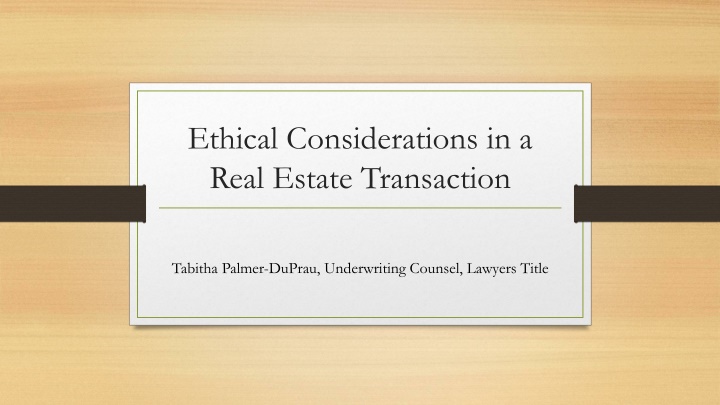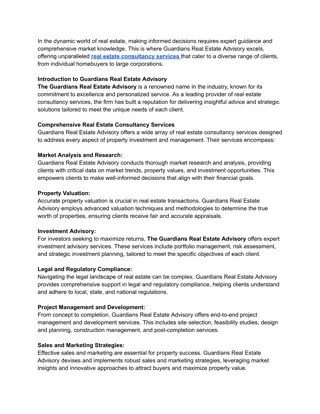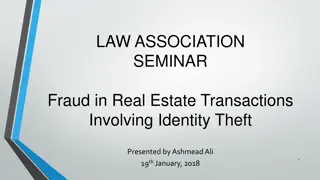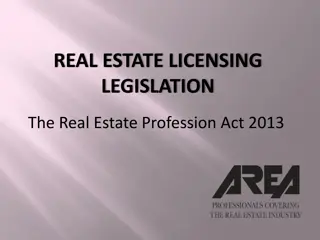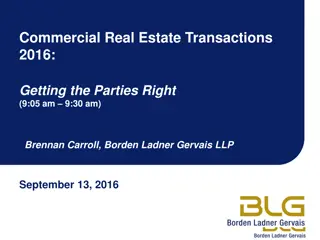Ethical Considerations in Real Estate Transactions
Understanding the role of a settlement agent as a neutral third party in real estate transactions, including fiduciary duties such as remaining neutral, acting in good faith, and safeguarding funds. Exploring the responsibilities of escrow officers as neutral agents and the limitations to avoid unauthorized practice of law in Oregon.
Download Presentation

Please find below an Image/Link to download the presentation.
The content on the website is provided AS IS for your information and personal use only. It may not be sold, licensed, or shared on other websites without obtaining consent from the author.If you encounter any issues during the download, it is possible that the publisher has removed the file from their server.
You are allowed to download the files provided on this website for personal or commercial use, subject to the condition that they are used lawfully. All files are the property of their respective owners.
The content on the website is provided AS IS for your information and personal use only. It may not be sold, licensed, or shared on other websites without obtaining consent from the author.
E N D
Presentation Transcript
Ethical Considerations in a Real Estate Transaction Tabitha Palmer-DuPrau, Underwriting Counsel, Lawyers Title
What is a Settlement Agent? A neutral third party charged with adhering to and following the written mutual instructions of the parties to the transaction.
Fiduciary Duties Remain neutral; no personal or self-dealing Act in good faith Maintain loyalty; no conflicts of interest Protect the confidentiality of your customers and the details of their transaction Properly close the transaction by following mutually agreed upon, written instructions Act with a high degree of care to conserve the money and pay it only to those persons entitled to receive it as disclosed on your settlement statement Safeguard all funds on deposit Fully disclose all receipts and disbursement
Neutral Third Party An escrow officer is a neutral agent that has not duty other than to carry out the terms of the escrow instructions received from the parties. Gebrayel v. Transamerica Title Ins. Co.. 132 OR App 271, 888 P2d 83 (1955); Barr v. Pratt, 105 OR App 220, 224, 804 P2d 496 (1991) The escrow officer does not have any other duty to look after the parties interest. Bowles v. Key Title Co., 163 OR App 9, 986 P2d 1236 (1999)
Neutral Third Party Remain Neutral no favorites Avoid Appearance of Self-Dealing Problem Solving and Advocating the client is responsible for resolving title issues, complying with lender requirements, and other wise resolving problems that may arise during the transaction Interpretations and Representations of other parties documents Mediation or deciding disputes between the parties
Unauthorized Practice of Law ORS 9.160 prohibits a person from practicing law in Oregon unless the person is an active member of the Oregon State Bar. It has an exception that allows title insurers and escrow agents to perform limited legal functions, specifically preparing documents, that are necessary to close a transaction. Escrow agent is required to provide notice to the parties that there are legal consequence to the documents it prepared and the parties should consult with an attorney. Escrow agent is required to deliver certain documents and the notice three days before the completion of the transaction.
Lawyering vs Escrowing Can do: Act as a scrivener: Prepare documents according to the parties written instructions Prepare title clearing documents for liens and encumbrances Present a specific blank forms to the principals of the transaction for their use, i.e., trust deed Explain our documents, specifically, our escrow instructions
Lawyering vs Escrowing Cannot Do: Explain how a title exception affects the property or what it means for them Determine the respective rights of the parties under their Purchase and Sale Agreement Determine what documents will best achieve the party s goals or how a document should be completed to achieve a party s goal Explain the legal rights and obligations a party may have under another party s documents Explain how to complete a third party s required form Represent or explain a third party s actions, requirements, or policies
Written Mutual Instructions 696.581 Written escrow instructions or agreement required; statement; instructions containing blank prohibited; one-sided escrow; exceptions. (1) An escrow agent may not accept funds, property or documents in any escrow transaction without dated, written escrow instructions from the principals to the transaction or a dated executed agreement in writing between the principals to the transaction. (2) Except as provided in this section, an escrow agent must follow dated, written escrow instructions executed by the principals or a dated executed written agreement between the principals to a transaction. (3) Except as provided in ORS 314.258, an escrow agent may not close an escrow or disburse any funds or property in an escrow without obtaining dated, separate escrow instructions in writing from the principals to the transaction adequate to administer and close the transaction or, in the case of disbursement, to disburse the funds and property. (4) The following statement or its substantial equivalent shall appear on or be attached to all written escrow instructions prepared by an escrow agent for signature of the principals to a transaction. The statement shall be in at least 10-point bold type. The statement shall either appear immediately above the signatures of the principals or be separately initialed by the principals: ______________________________________________________________________________ It is understood by the parties signing the above or attached instructions that the instructions are the complete instructions between this firm as an escrow agent and you as a principal to the escrow transaction. These instructions may not include all the terms of the agreement which is the subject of this escrow. Read these instructions carefully, and do not sign them unless they are acceptable to you. ______________________________________________________________________________ (5) An escrow agent may not solicit or accept any original, amended or supplemental escrow instructions containing any blank to be filled in after signing. An escrow agent may not allow any alteration of original, amended or supplemental escrow instructions, unless the alteration is signed or initialed by all principals who signed or initialed the instructions before the alteration.
Written Mutual Instructions ORS 696.581 continued (6) An escrow agent may accept trust funds, in excess of earnest money required in transaction documents to be held, as individual funds of the principal who has paid them into escrow. Such individual trust funds may be disbursed with only the separate written instructions of the principal who deposited the funds into escrow. (7) An escrow agent may open a one-sided escrow, as defined by rule by the Real Estate Commissioner, by receiving the funds, property or documents for an escrow. Such escrow funds may be disbursed with only the separate written instructions of the principal who deposited the funds into escrow. (8) Except as authorized in ORS 105.475, notwithstanding the requirement for dated, separate escrow instructions to close an escrow or disburse funds or property in an escrow, an escrow agent: (a) May disburse earnest money deposited based on an agreement of the parties executed after the initial sales agreement; and (b) May not impose additional requirements on the principals to the transaction, including a requirement that the principals sign a release of liability in favor of the escrow agent. (9) Notwithstanding any provision of this section, an escrow agent may disburse funds, property or documents deposited in escrow in accordance with an order of a court of competent jurisdiction. [1985 c.399 2; 1991 c.874 11; 2007 c.289 1; 2008 c.54 2; 2009 c.174 11]
Written Mutual Instructions Real Estate Agency Administrative Actions: Interpleaded Funds: Escrow disbursed disputed earnest money funds to a third party to interplead without obtaining a court order or dated, written instructions from the principals to the transaction. Undated Instructions: Escrow followed handwritten instructions to pay off credit cards pursuant to a divorce decree. The sellers signed but did not date the instructions. Late Payoff: Escrow paid for a home warranty after close of escrow instead of at the time of close.
Written Instructions Multiple Sellers: Written instructions on how to disburse the proceeds among them Clearing Documents and Payoff Statements: Clearing documents from third parties should also come with instructions on when and how to use them Holdback Escrows Third Party Funds Lender Instructions
Parties to the Transaction ORS 696.505(8) defines Principal. A principal may be: Buyer Seller Lessor-Lessee Exchangor Borrower (refinance) Borrower-Lender (collection escrow) Vendor-Vendee (collection escrow) An agent of the principal may be: Real Estate Agent Attorney Tax Professional Agent under a Power of Attorney Lender
Parties to the Transaction Vested Owner vs Seller on PSA LLC vs LLC members Personal Representative of an Estate vs Heirs or Devisees Trustee of a Trust vs Beneficiaries of the Trust Lienholders Helpful Family Members and Friends Assignee of an original principal
OLTA 2023 info@oregonlandtitle.com
